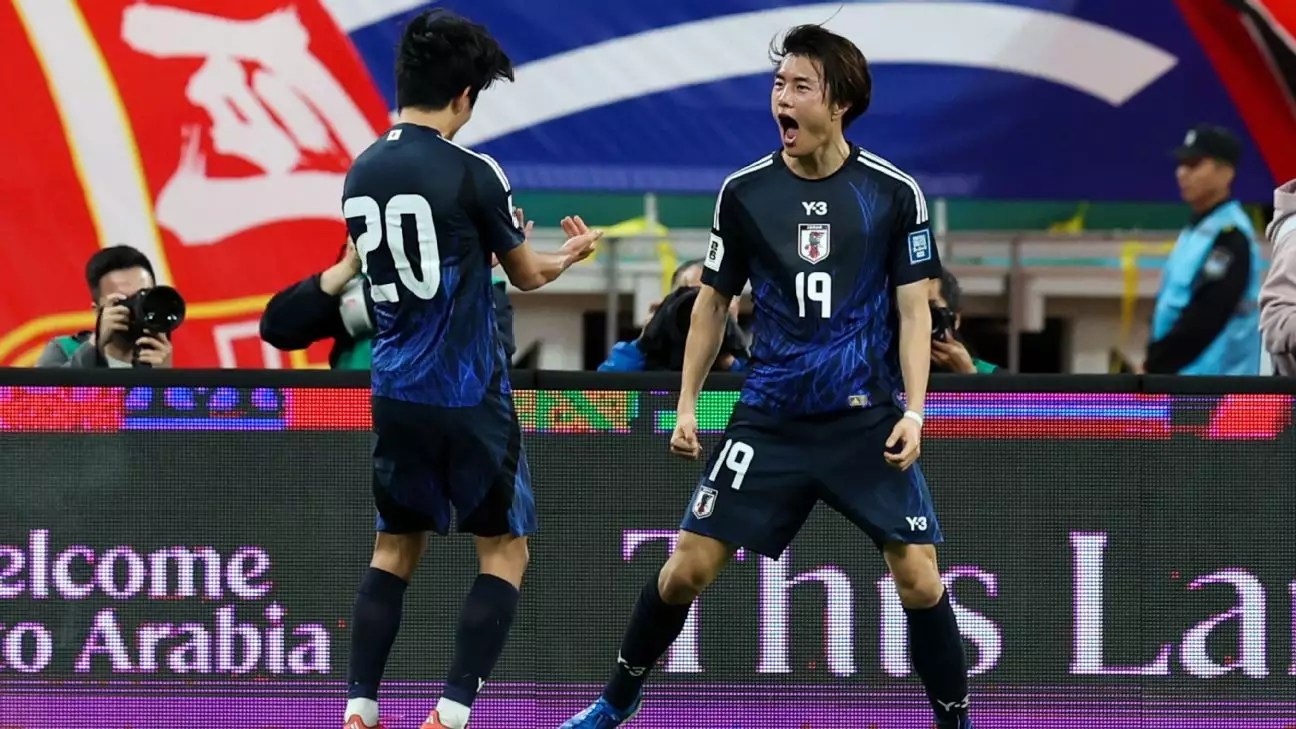As the third round of Asian qualifiers for the 2026 FIFA World Cup unfolds, Japan stands on the brink of making history with an expected eighth consecutive appearance in this prestigious tournament. The Samurai Blue have been a powerhouse in Group C, holding an impressive nine-point cushion over their nearest rivals. With four matches remaining, they have a golden opportunity to secure their World Cup berth, with clashes against Bahrain and Saudi Arabia poised to be pivotal in March. This continued success, however, is merely a stepping stone for Japan, whose ambitions have shifted from merely qualifying to making a deep impact on the world stage.
Hajime Moriyasu, the head coach of the national team, has articulated a bold yet achievable vision: winning the World Cup itself by the year 2050. This goal, part of the “JFA Pledge” initiated by the Japan Football Association, underlines the national program’s aspiration to break through the glass ceiling that has restricted them to the round of sixteen in previous tournaments. This ambitious roadmap, which includes a target of reaching the semifinals by 2030, signals a newfound determination to elevate Japanese football to elite status.
One of Japan’s key strengths lies in its talented pool of players, many of whom have gained invaluable experience in European leagues. Their recent performances in the World Cup demonstrate their capability to compete with heavyweights. Japan’s victories over Germany and Spain, even with a dramatic penalty shootout exit to Croatia, showcased their potential to challenge the very best.
Currently, Moriyasu’s strongest XI features players like Zion Suzuki in goal and a solid three-man defense comprising Ko Itakura, Shogo Taniguchi, and Koki Machida. In the midfield, Ritsu Dōan, Wataru Endō, Hidemasa Morita, and forward Kaoru Mitoma bring extra creativity and flair. The attacking front, with talent such as Takumi Minamino and Ayase Ueda, has shown promise, but questions remain over the consistency and depth of the squad. Notably, positions remain fiercely contested, meaning some players need to step up their performances to consistently secure starting roles.
While Japan’s roster may not yet rival nations like Brazil, France, or Argentina in terms of star power, their collective playstyle and unity have consistently proven effective. Effective communication and teamwork can sometimes outweigh pure individual talent, as observed in their recent matches.
Despite having a solid starting lineup, Japan’s squad depth raises concerns. Players such as Daizen Maeda and Reo Hatate have yet to make significant impacts on the international stage, while others like Kyogo Furuhashi have been underutilized. With injuries sidelining key players like Hiroki Itō and Takehiro Tomiyasu, and the continued inclusion of veterans like Yuto Nagatomo—despite his impressive performances in the J1 League—the lack of emerging talent poses a challenge in maintaining a competitive edge.
The absence of dependable substitutes means that Japan risks becoming overly reliant on its star players. In high-stakes situations, this dependency could hinder their performance. Moriyasu must foster a culture of competition that encourages every player, from the starters to those on the bench, to push each other to excel continually.
Moriyasu’s coaching style has evolved, reflecting a shift in tactics toward a more aggressive and attacking philosophy. His previous reliance on counterattacking strategies against higher-caliber teams has given way to a more dynamic approach, employing wing-backs in attacking roles. This change has yielded promising results, with a more fluid style of play allowing Japan to dominate their qualifiers.
However, questions linger over whether this strategy can hold up against the top footballing nations when the stakes are highest. The upcoming matches against stronger opponents will serve as critical tests for Moriyasu and his team.
A crucial element in Japan’s quest for greatness is a shift in mental attitude. Historically, Japanese football has been characterized by respect and humility. While these qualities are commendable, the drive to win may require a transformation towards adopting a more ruthless mentality. Players must arrive at matches with the conviction that they can triumph over any opponent, without losing their cultural identity.
Recent performances suggest a growing confidence, evidenced by their clinical displays against weaker teams. By improving their goal-scoring ruthlessness while retaining respect for their opponents, Japan can carve a path to success on the global stage.
While Japan’s road to the 2026 FIFA World Cup appears promising, it is not without its challenges. Their preparations, strategic developments, and conditioning will be pivotal in determining their success, especially if they hope to surpass previous limitations and emerge as genuine contenders for football’s most coveted prize. The target is set high, but with dedication and the right mindset, it is a challenge Japan is beginning to embrace.


Leave a Reply